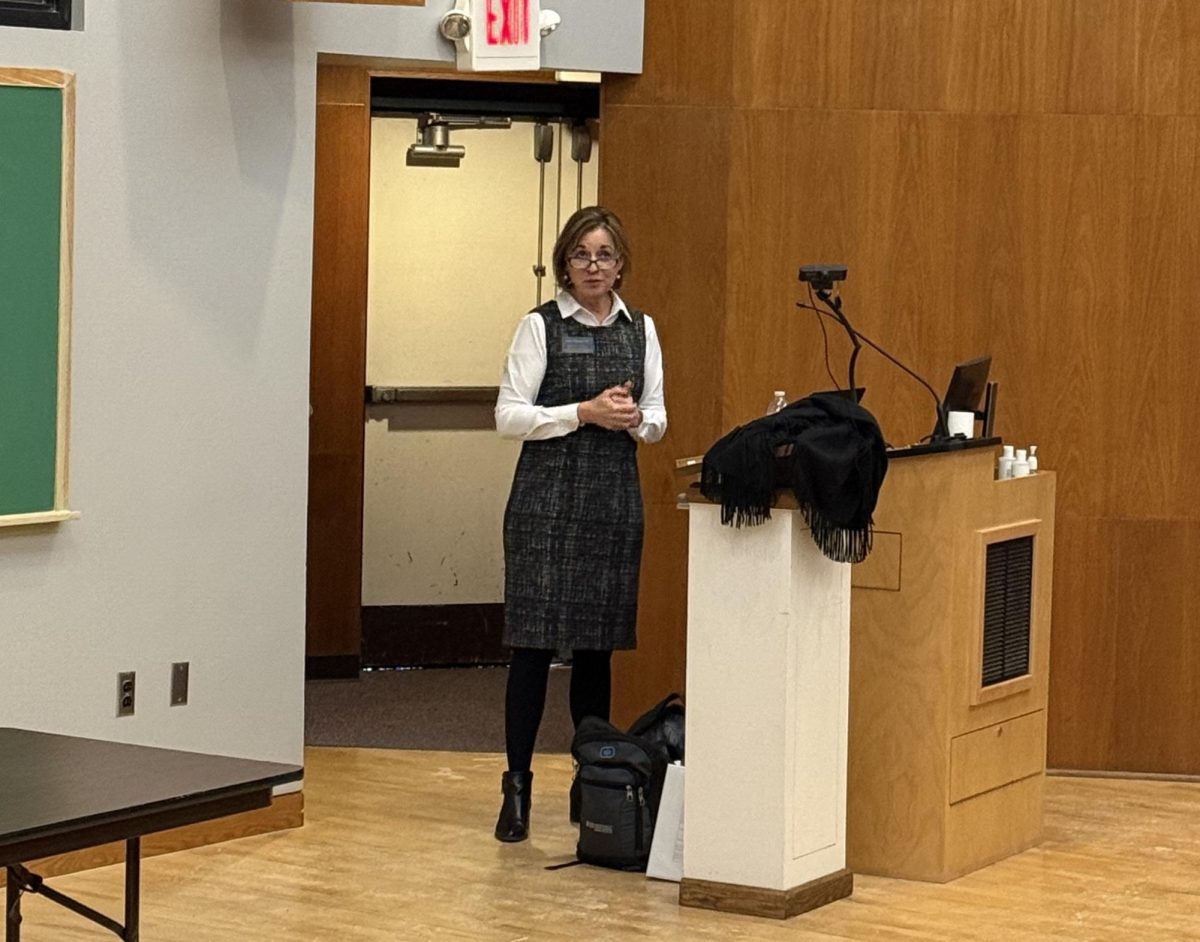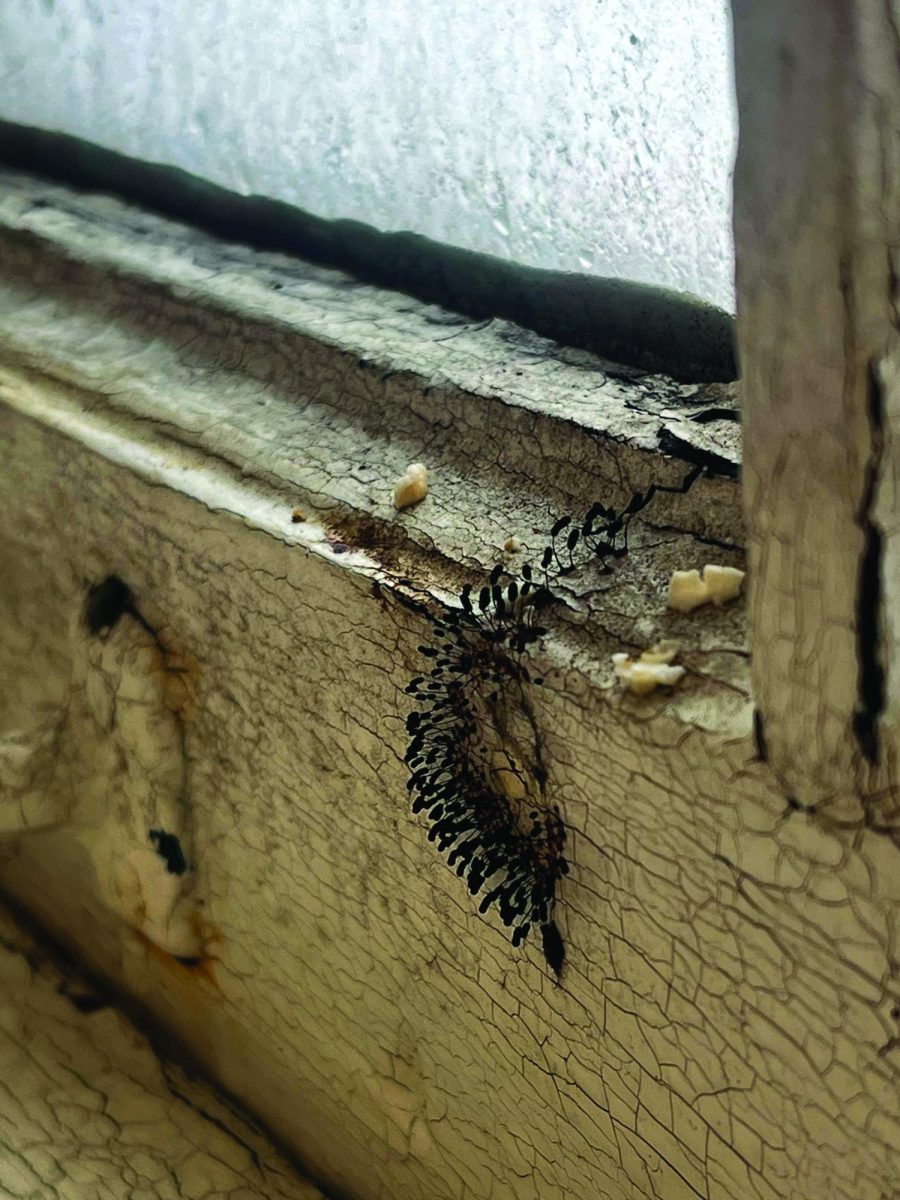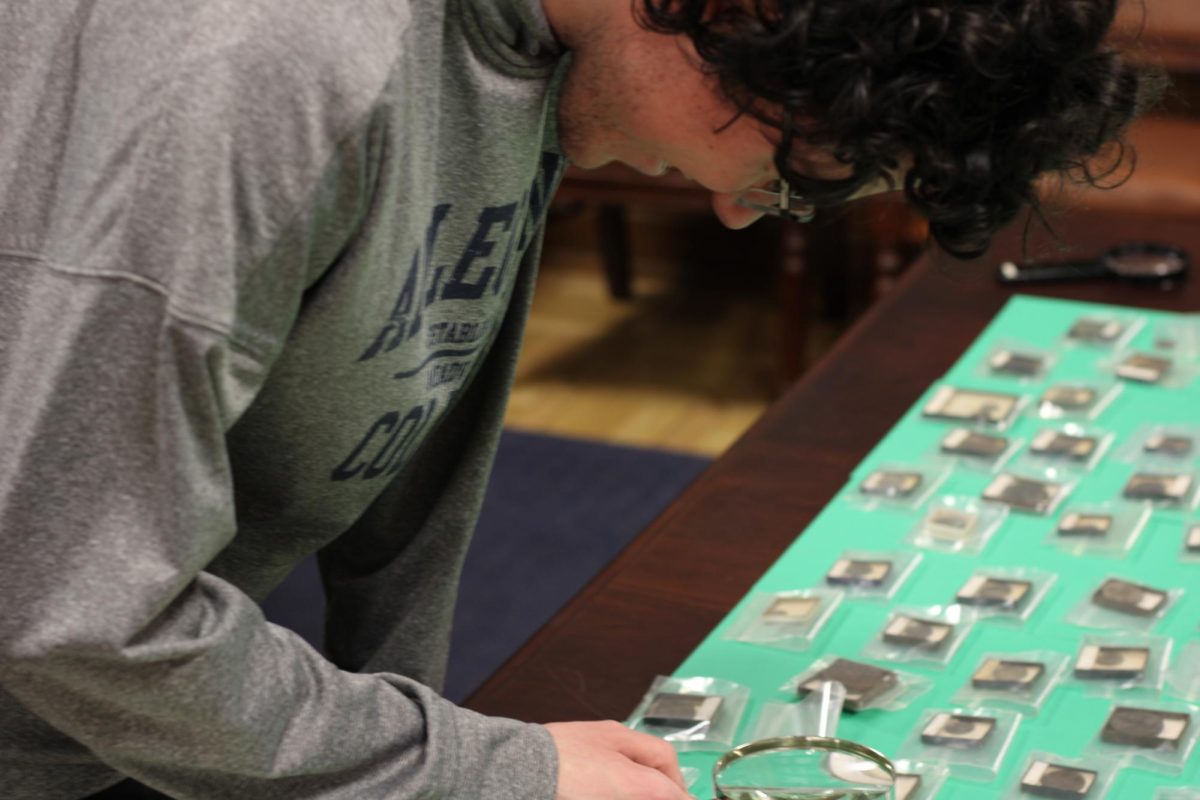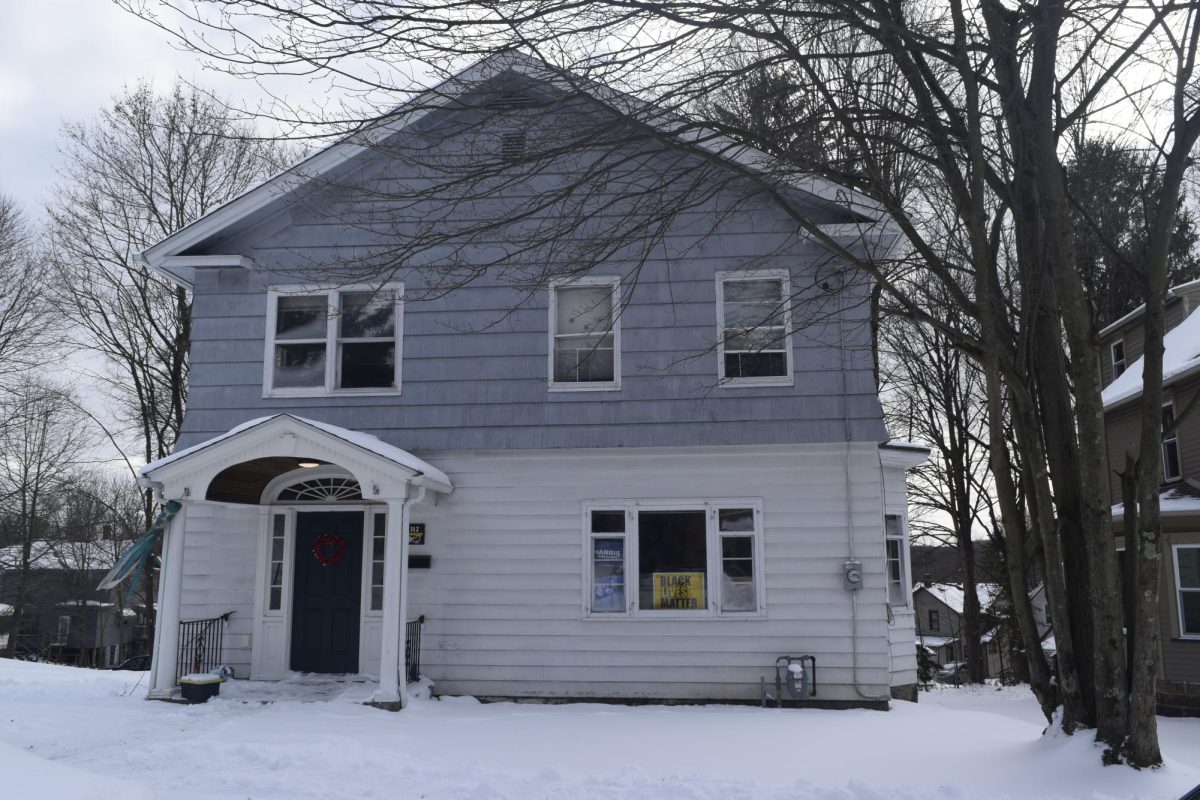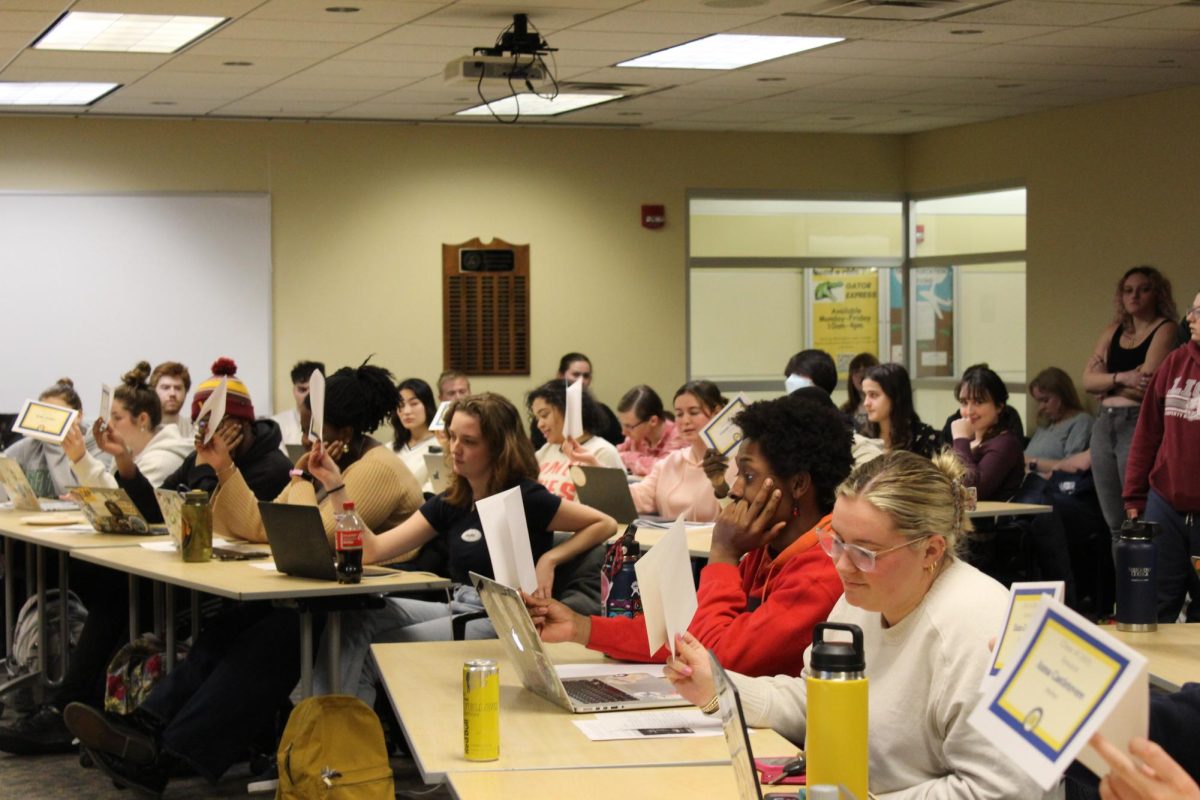Hundreds of students packed the Tillotson Room of the Tippie Alumni Center to standing-room-only on the evening of Tuesday, Aug. 29, as part of the Allegheny Student Government’s Club Leadership Training.
Included in the training were a number of changes and clarifications to the ASG Financial Guidelines, some of which reaffirm pre-COVID financial controls and some of which will significantly adjust how clubs do business.
“We are here to serve the broader student body, and so we want to distribute those resources and make resources available for everyone,” ASG President Nicole Recio Bremer, ’25, told The Campus in an interview Monday.
Club budgets
Among the biggest changes is the removal of club budgets. In the past, clubs would apply for budgets at the end of the spring semester for the following academic year, and be awarded an amount based on their application. That budget would be “approved” by the Budget Committee, composed of members of both the outgoing and incoming administration.
Yet the Budget Committee didn’t meet this past May, according to Recio Bremer, who said the call was made by last year’s leadership.
“That didn’t even happen with (former ASG President) Veronica (Green, ’23) and (former Vice-President) Rudra (Schultz-Ray, ’23),” Recio Bremer told The Campus Monday. “The budget hearings didn’t even happen last semester.”
And ASG Treasurer Hunter Goerman, ’25, told club leadership that there would be no club budgets; instead, all expenditures would be requested directly from the General Fund.
There are two reasons for this change, according to ASG.
First, Recio Bremer told The Campus that the decision stemmed from a conversation over the summer between her, ASG Vice President Sam Ault, ’26, and Dean for Student Life Trae Yeckley.
The trio discussed the delay in knowing the size of the General Fund, which is dependent on the number of students enrolled. The total size of the student body is not known until “Count Day” — the 11th day of class, when the total number of students is tallied — and the budget announced after that. This year, Count Day is Wednesday, Sept. 13.
“I was worried that clubs wouldn’t be able to have money till the end of September — that made no sense to me,” Recio Bremer said.
Goerman also said that club budgets were not being used as a form of funding, and clubs were just making finance requests without properly using ASG’s seven different forms of funding.
“A lot of people didn’t know the difference between their club budget and a regular finance request from the general fund, so we just thought it makes it easier just to pull from the general fund,” he said.
For some club leadership, though, removing club budgets can make it harder to plan financially for the academic year.
“I think it just makes it more complicated in the way of, we don’t know how much we’re allowed to have, whereas before it was like, ‘Okay, you ask for this much, you get that much,” said Reagan Grace Wheat, ’26, who serves as the ASG treasurer for the student cafe Grounds for Change.
However, Goerman said that last spring’s budget applications will still be used as a monitor for judging the reasonableness of club requests — something that was not mentioned at the club leadership training.
“Whatever you requested last year, that’s what your baseline, or top ceiling, should be,” Goerman said. “That’s something I think is important, and we should be doing. It’s their club’s money to spend, but we want to make sure everybody’s not overspending what they projected. This kind of makes it easier for everybody involved.”
He has not yet decided if budget applications will open again in the spring to serve as a similar baseline in the fall.
Financial controls
Beyond the big change in club budgets, ASG also presented their Financial Guidelines to club leadership. Some of those guidelines included changes to existing norms — most notably, the requirement that all financial requests happen two weeks in advance of the event they will be used for. Once a suggestion, it is now a firm rule for all clubs.
“It’s to better use everybody’s time and be more respectful, because these are college funds we are using and we should be doing it in enough time,” Goerman said. “People shouldn’t be requesting funds with three days’ notice of their event — that just makes it harder for everybody.”
Other guidelines — like the procedure for charging admission for a fundraising event — were clarified, and many rules already on the books but not enforced in the past few years — like documentation requirements for certain requests — will be making a comeback. It’s part of an overall effort to make students more accountable for the funding they use, Yeckley said.
The presentation was also designed to head off unintentional misuse of funds, which last year came dangerously close to fraud, Yeckley told club leaders on Aug. 29.
Speaking to The Campus on Monday, they cited club retreats as the biggest source of poor controls, where students would unknowingly fail to follow the correct procedures to request funding for travel or lodging. Clubs are required to share hotel rooms and carpool as much as possible — though students would take their individual vehicles and not split rooms, Yeckley said.
And on any ASG-funded road trip, students have to provide proof of insurance, license and mileage.
“I think I would start with the phrase that I hate on this campus: ‘Well, we used to do it this way,’” Yeckley said. “These are all things that we had been doing pre-COVID that we should be doing so, in case we get audited, we can look back and say, ‘No, this is how our funds were used.’”
Yeckley also framed the renewed procedures as preparation for using funding in a job after graduation.
“Anytime that we spend college funds as employees, there are things that we have to do in order to ensure things are being spent appropriately — we are making sure the students are doing the same thing,” they said.
Grounds for complaint
Yet for some clubs, the added financial controls are confusing and complex. Student cafe Grounds for Change, for example, makes weekly purchases of supplies and are unable to submit itemized requests two weeks in advance because they buy based on their need.
“It’s just really jumbled and confusing,” Wheat said.
GFC leadership met with Assistant Dean for Student Leadership and Involvement Eric Stolar this week to discuss their budget. Speaking before the meeting, GFC President Erica Fontan, ’24, expressed cautious optimism about getting support for their organization.
“I think it should be good, but if not, then I think we as a board are really determined to set the law down like, ‘You need to help us,’” Fontan said. “This is not like, ‘Oh can you’ — we’re not asking you, we’re telling you, ‘You need to help us.’ Because we are a very important safe space to the community and we’ll continue to do so.”
Fontan added that concerns about finances can also snowball with the wider pressures of running GFC, which stands for many as an important pillar of the Allegheny experience.
“We just deserve that kindness and respect and grace because, again, not only that we’re all students, we’re all human at the end of the day, and we’re learning these new rules day-by-day, just like everyone else,” they said.
Ultimately, Recio Bremer sees the implementation of the financial guidelines as a way to make spending more efficient — and open up more opportunities for more students.
“If we can find a way of reinforcing these rules that were previously put in place, that could help other students get more benefits, and in the long run, all of us benefit from it,” Recio Bremer said.
Surplus spending
This year, ASG will inherit a Surplus Fund of around $616,000, according to The Campus’ analysis of ASG’s financial reports from the 2022-23 school year. This would be the largest surplus fund in the organization’s history and bigger than ASG’s entire budget in the 2019-2020 school year.
Two main factors have led to this. During the height of the COVID-19 pandemic, when club events and gatherings were limited, the Surplus Fund roughly doubled to $538,000. It dropped back down to around $365,000 at the start of the 2022-23 school year, but exploded again after ASG spent just 20% of their funding over the last year — against a total budget of $779,384, student organizations spent a total of around $162,000.
Goerman, who served on the Finance Committee last year as a senator for the Class of 2025, said that club spending last year was all that came through.
“Pretty much every finance request we got was approved,” he said. “If there weren’t more events, that’s not something we really have control over. We just approved what we’ve already seen. It might seem low, but that’s still, like, whatever clubs were requesting.”
Yeckley said that he does not anticipate the fund growing further, based on what he sees as increased student involvement and ambition, including at the fall Involvement Fair.
“Clubs want to do stuff, and students want to do things, and there’s this vibe on campus right now, that’s like, ‘Yeah, let’s have some fun,’” Yeckley said.
The college is also in the process of hiring a professional bookkeeper to manage student funds. Those responsibilities have fallen primarily on the ASG treasurer and Student Life staffers since the last bookkeeper, Stacey Gerber, left in early 2022.
“Part of their salary will be paid from our ASG budget — so some of that will go to that, not a whole lot,” Goerman said. “The bookkeeper position will help keep track of funds and make things easier as well.”
A Boogie, a firepit
To shrink the fund, ASG and Student Life are planning two major projects — the biannual Major Events Concert in the spring, and a campus beautification project that’s still currently under wraps.
“The only thing I can release right now is that we’re trying to work the nuts and bolts so we can release it for student input,” Recio Bremer said. “We want to hear about what people think, what people want to see, what people don’t want to see, and that’s going to come up soon, hopefully. But for now, we know a lot of our budget this year is going to that.”
The surplus fund has been used before for improvements to the campus itself; the fire pits installed in North Village and by Murray Hall were paid for with part of the surplus fund two years ago.
“It’s student money and it should be used for student things on this campus,” Yeckley said.





